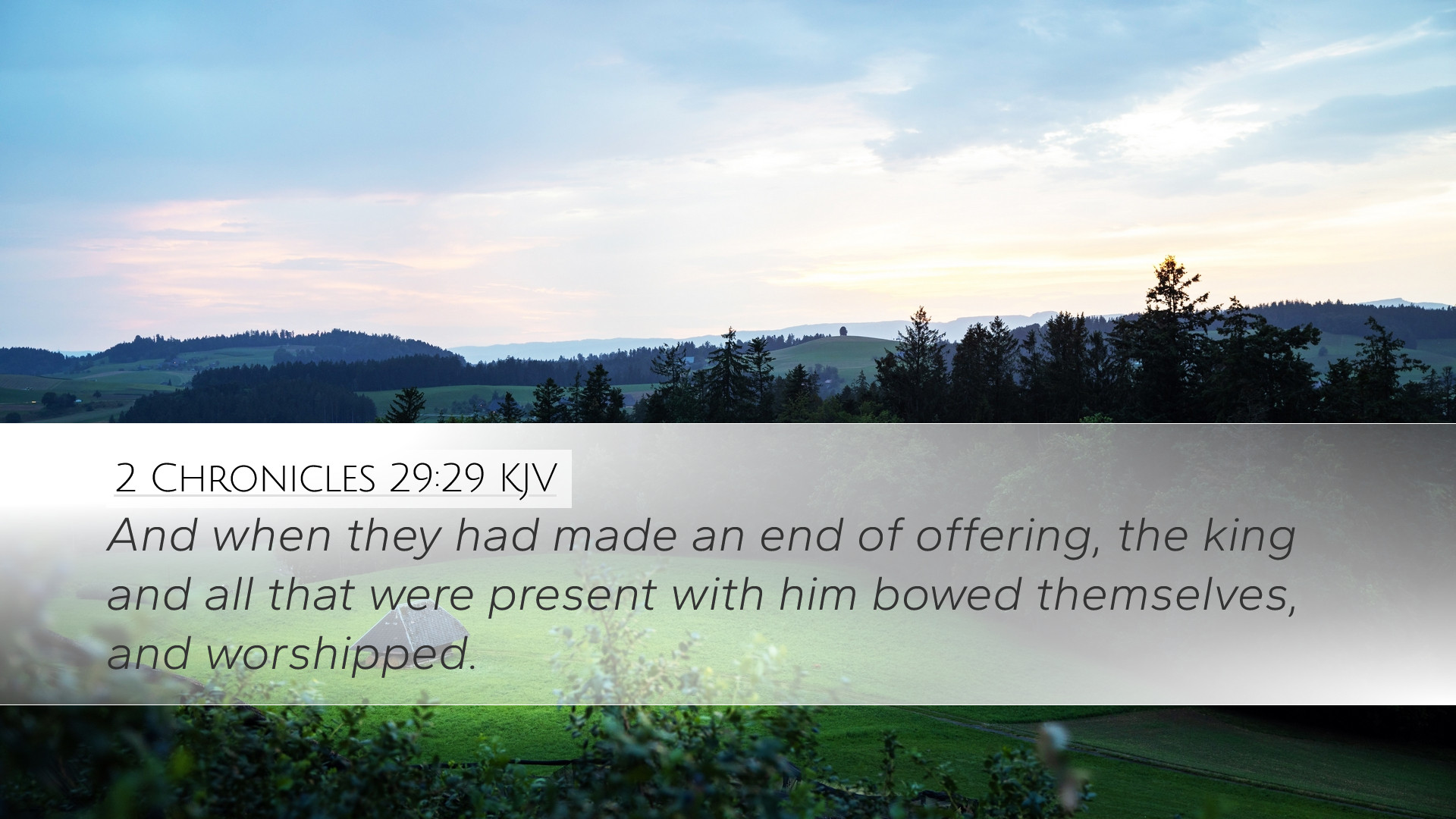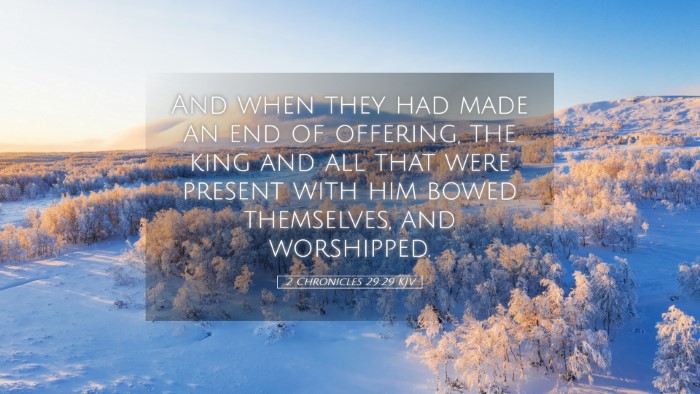Commentary on 2 Chronicles 29:29
Verse Context: 2 Chronicles 29:29 states, "And when they had made an end of offering, the king and all that were present with him bowed themselves, and worshipped." This verse captures a critical moment in the larger narrative of King Hezekiah's reign, focusing on the restoration of proper worship in the temple.
Introduction
This commentary delves into the significance of 2 Chronicles 29:29, utilizing insights from respected public domain commentaries to provide a comprehensive understanding of its theological and historical implications. Hezekiah's reforms are a pivotal point in the Chronicles, indicating a return to genuine worship and the right practice of religion following a period of neglect.
Thematic Analysis
1. Restoration of Worship: This verse encapsulates a moment of collective worship and signifies the reestablishment of the temple as the center for the Israelites’ spiritual life.
- Matthew Henry emphasizes the importance of returning to God’s ordained means of worship as essential for national and personal renewal.
- Albert Barnes comments on how the public act of worship reflects the king's commitment to Yahweh and serves as an invitation for communal participation in faith.
Historical Perspective
Hezekiah's reign is characterized by significant religious reforms. The opening verses of Chapter 29 narrate how Hezekiah initiated the cleansing of the temple, ordering the Levites to consecrate themselves and the house of the Lord.
Adam Clarke notes that these reforms were not merely ceremonial; they represented a deep-seated desire to restore the covenant relationship with God. This desired return to holiness and order is underscored by the act of bowing and worshipping as a royal and collective gesture of humility before God.
Theological Implications
This passage highlights several key theological themes:
- The Sovereignty of God: The reformation initiated by Hezekiah serves as a reminder that God remains committed to His people even in times of spiritual decline.
- The Importance of Corporate Worship: The collective worship of the king and his people illustrates the idea that worship is not only personal but also communal. The act of bowing signifies submission and reverence.
- Symbolism of Offerings: As seen in the verses leading up to 29, the offerings represent atonement and dedication, serving as mediators between the people and God.
Practical Applications
Lessons for Leadership: Pastors and leaders can draw crucial insights from Hezekiah's example of reform. Effective leadership often requires a return to foundational principles of worship and engagement with God's word.
- Leaders must recognize their influence in guiding congregations toward meaningful worship experiences.
- Understanding historical precedents in Scripture can inform current practices and beliefs.
Conclusion
In summary, 2 Chronicles 29:29 encapsulates a profound moment of worship and restoration under King Hezekiah. The collective act of bowing and offering signifies not only a national resurgence in faith but also sets a precedent for future generations on the necessity of true worship. Insights from commentators like Matthew Henry, Albert Barnes, and Adam Clarke offer layers of understanding and application that continue to resonate with believers today.
Further Reflection
As we reflect on this passage, let us consider our own corporate worship practices and the sincere return to God that this text calls for. In what ways might we bow and worship together in unity, submitting to God’s authority and seeking His presence?


